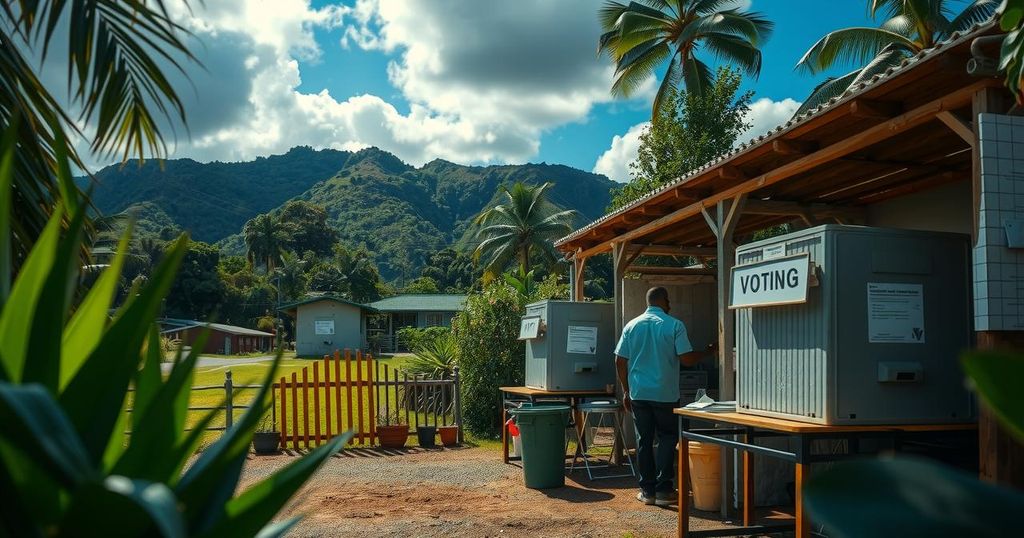Mauritius Holds Elections Amidst Scandal and Governance Concerns

Mauritius held a parliamentary election amid a phone-tapping scandal, raising concerns of electoral fraud. The election follows a sovereignty agreement regarding the Chagos Islands, complicating Prime Minister Pravind Jugnauth’s re-election efforts. Voter participation and transparency were emphasized, with significant public concern over governance and corruption threatening the nation’s stability and democratic integrity.
Mauritius conducted a parliamentary election amid allegations of a phone-tapping scandal, an event that traditionally represents political stability in this Indian Ocean archipelago. As citizens went to the polls, opposition leaders expressed concerns over potential electoral fraud, underscoring the need for vigilance. This election follows a significant agreement where Britain transferred sovereignty of the Chagos Islands back to Mauritius, a move expected to bolster Prime Minister Pravind Jugnauth’s re-election prospects. However, the emergence of leaked recordings of political conversations has complicated this landscape, prompting the government to impose a social media ban that was later revoked amid public pushback. Citizens were urged to participate actively, and election officials indicated their commitment to ensuring a peaceful and transparent voting process. Notably, nearly 1.1 million voters registered for this electoral contest, which is critically important for the future governance of this nation. Analysts highlight that while Mauritius has historically enjoyed political stability and economic growth, recent governance concerns, including alleged corruption and inefficiency, threaten this reputation. In this context, the election results will determine not only the leadership of the 70-seat National Assembly but also the direction of policies addressing economic challenges and civil liberties. Observers are keenly awaiting the outcome, reflecting on the implications of established political dynasties versus emerging reformist movements.
The political climate in Mauritius has been relatively stable since its independence from Britain in 1968. However, recent events, namely the wire-tapping scandal and governmental reactions to it, have raised questions about the robustness of its democracy and the integrity of its electoral processes. With the upcoming election being the 12th since independence, it serves as a crucial moment for potential reform or continued governance under long-standing political families. The shifting political dynamics follow the recent agreement over the Chagos Islands, a source of national pride and contentious history.
In summary, Mauritius’ parliamentary election occurs against a backdrop of political tension created by allegations of phone-tapping and public concerns about governance. The outcome will not only reflect voters’ preferences but also determine the potential for economic reforms and the reinforcement of democratic values in this historically stable nation. As political parties vie for control, the electorate remains vigilant, hoping for transparency and trust in their democratic institutions.
Original Source: www.bryantimes.com







